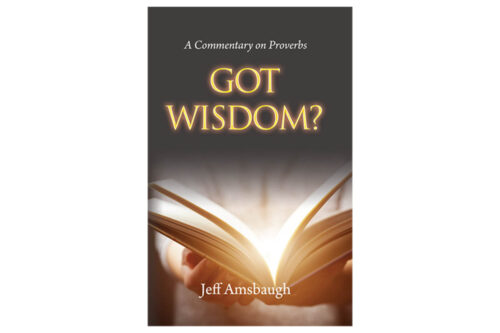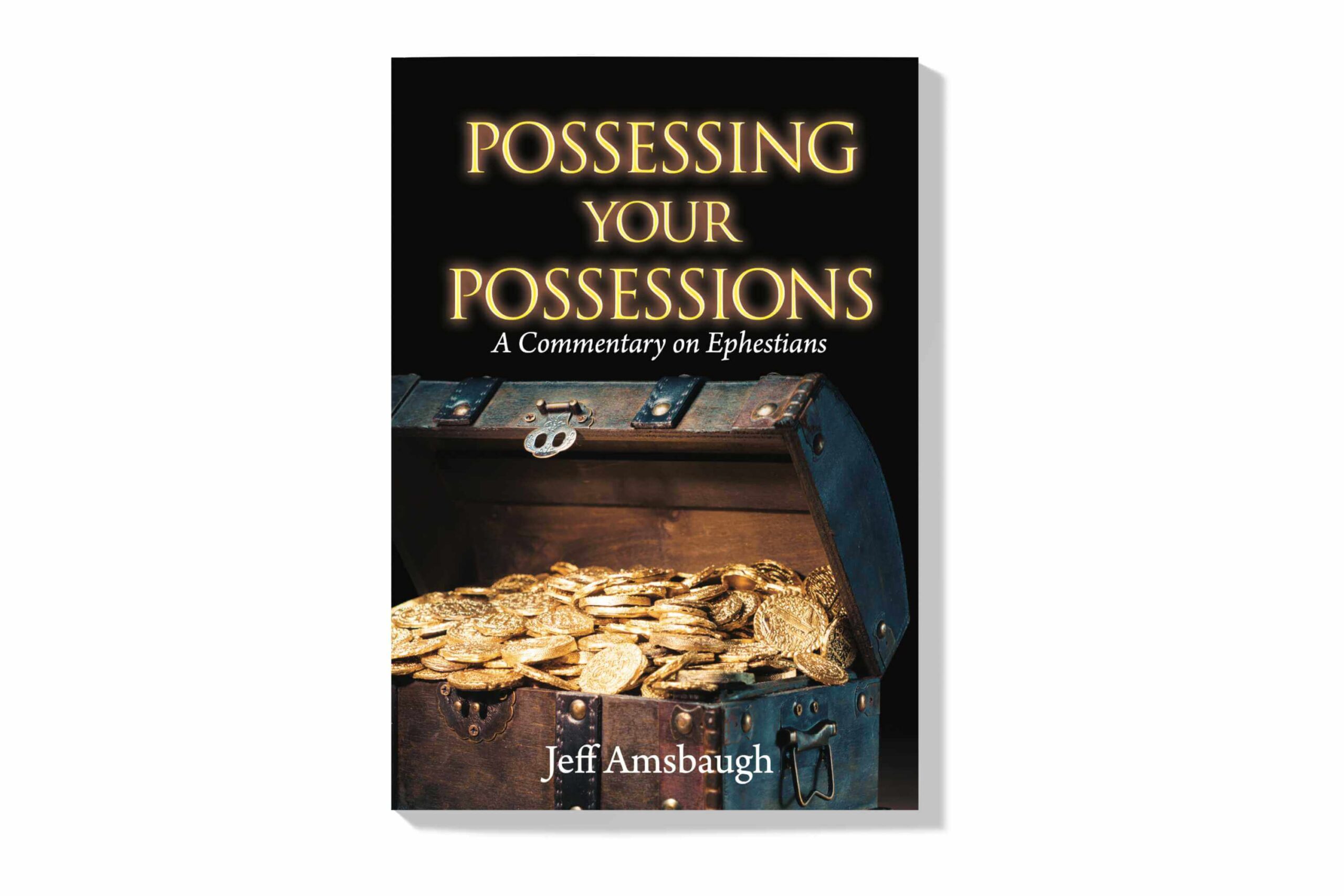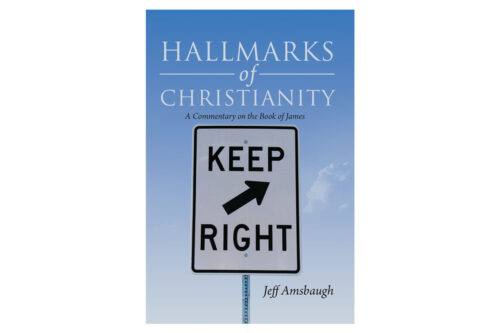-
Esther lived in a materialistic society that was filled with antisemitic people who thought more of their personal advancement than the people of God who lived among them. In a day when women were treated as property, and Jews were thought worthy of extermination, God brought Esther to the throne for such a time as this. Through the help of Mordecai, the prayers of her fellow Israelites, and more importantly, through the invisible, providential hand of God, the tables were completely turned, and the Jews were protected while their enemies were destroyed. Thus, the book of Esther highlights the miraculous, protective intervention of God. Though the Lord is never mentioned in the book, He is present on every page. God is often most involved when His presence is not seen. The God of Esther can also help us in uncertain times by manifesting His presence through the lives of obscure volunteers for such a time as this.
-
Isaiah ends his great prophecy by telling us about a new heaven and new earth. He does not leave us in the dark, however, about how this new universe will come to be. The entire focus of the book is on the Messiah, Jesus Christ. The prophet tells us of Christ’s birth, Christ’s cross, and Christ’s return. Jesus is the Servant of the Lord who accomplishes the very salvation of God. Indeed, He is God’s salvation. And it is no halfway salvation. It is salvation that helps us in this life and in the life to come. Those who embrace Christ are saved to the uttermost. We trust that you will arrive at a greater appreciation of this great salvation through this study of Isaiah
-
Many people love proverbs from whatever the source because they provide memorable advice in a short, pithy fashion. The book of Proverbs in Scripture, however, is not just good advice from wise people; it is infallible advice from the all-wise God. Proverbs provide the instruction that is necessary to live life wisely and godly. Numerous leaders have found success by reading, studying, and applying the truths from this book of the Bible. What about you? Got Wisdom? We trust that as a result of studying the Proverbs through this commentary you will become a wise guy in the best sense of that term.
-
We often think that trials are inappropriate for the Christian, and therefore we respond with bitterness and retaliation when they come. The Bible is clear, however, that trials are not foreign to the Christian life but a necessary component of it. Therefore, trials should not only be embraced but enlisted to serve God more effectively. This commentary explores the book of I Peter and develops concepts to help you submit the next time your Christian life is under fire.
-
God promised Joshua that the entire land of Canaan was available, but he and the Israelites must go forward and possess their possessions. Sadly, in the New Testament era, Christians many times allow the promises of God to be nothing more than unclaimed freight. Paul, in the book of Ephesians, outlines for us the glorious inheritance that we have in Christ and then encourages us to advance and claim it. May this study in Ephesians incentivize you to possess your possessions.
-
When a person accepts Jesus Christ as his personal Saviour, he is immediately justified in the eyes of God. But how is a person justified in the eyes of men? This commentary takes you through the book of James and explains the defining hallmarks of Christianity. Here you will find practical tips on how to stay right in a world that is constantly drifting left.
-
We live in a world that invites comparisons. We compare restaurants, cars, and even churches. Some seminaries even offer courses in comparative religions. One famous apologist said that “all religions are essentially the same. They just differ over minor issues such as sin, salvation, heaven, and hell.” The author of the book of Hebrews goes to great lengths to prove that Jesus is better than anything religion can offer. Join us in this study of Hebrews to find out why Jesus is “better by far.”
-
In previous ages, Christians lived in great anticipation of the Lord’s return. A belief in the imminent rapture of the church led many Christians to embrace holy living and aggressive evangelism. Times, however, have changed. Now, anyone who speaks of the Lord’s return is viewed as being on the same level as someone who claims to have seen Elvis in Burger King. Prophecy is seldom preached, and when it is, the preacher is viewed as a kook. The New Testament in general, and the books of I and II Thessalonians in particular, repeatedly emphasize, however, the fact that the King is coming. Our hope is that the pages of this commentary will help you live in light of that day.
-
As the children of Israel were exiled in Babylon, it appeared as if God’s glory had permanently departed from their midst. Indeed, God begged them not to send Him away as His glory gradually departed. The Israelites, however, like us, often believe that life is do-able without God. The result of this humanistic philosophy is bondage and death. God, however, is not through with us. He promises to return in all of His power and fill not only the temple, but also the whole earth, with His glory. Join us in a study of Ezekiel and learn how to appreciate the glory of God that indeed fills the house.
-
Many believe that the book of Ecclesiastes is a pessimistic discourse, but it is truly a powerful apologetic for a God-honoring life. After Solomon tries everything without God, he is left with nothing but vanity. Such is the always the case when life is lived under the sun. No matter how attractive the hedonistic life may appear, such pursuits are a mere chasing of the wind – the acquisition of soap bubbles. When Solomon, however, fears God and keeps His commandments, wholeness returns. Hopefully this study of Ecclesiastes will encourage you to live a substantive life of dedication to God rather than a hollow existence of soap bubbles without Him.
-
Life is filled with dreams. Someone has once said that we will never accomplish more than we are willing to dream. There is no denying that Daniel was a dreamer and was interested in helping fulfill the dreams of others. This commentary takes you through the historical and prophetic sections of Daniel, a significant Old Testament work. It is our hope that as a result of this study you will not be afraid to dream the impossible and trust God for the unforeseeable. No true student of eschatology can rightly understand the future without a working knowledge of the book of Daniel. It is our prayer that this commentary will aid your prophetic understanding of God’s Word.
-
If Haggai is the builder who encourages the Jews to complete the unfinished Temple, Zechariah is the artist who installs the colorful windows. Though Zechariah is fully aware of the present realities and spiritual needs of his countrymen, he lifts their eyes to see things from a heavenly vantage point. God is over all, working all things according to the good pleasure of His will. It is during times of deep distress that you and I should catch a glimpse of the glory. The inspired visions and prophecies of Zechariah prove that even when things are blackest, when the Shepherd is smitten and the sheep are scattered, nothing can keep God’s kingdom from being established on planet earth. When evil does its worst, the Lord remains in control. Join us in a study of Zechariah to catch a glimpse of this glory.












